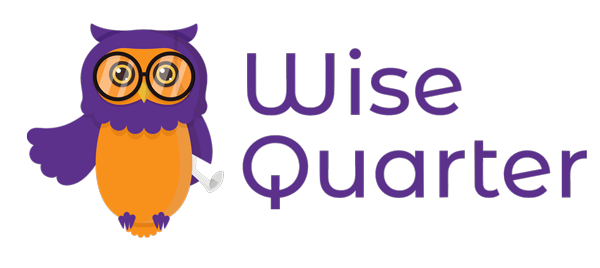
Software Development Engineer in Test (SDET)



Duration
28 Weeks
Start Date
April 29,2024 / (Daytime)
June 24,2024 / (Evening time)
To talk to us via WhatsApp.
Why Software Development Engineer in Test (SDET)?
As technology continues to advance, the demand for Skilled Development Engineers in Testing (sdet) has never been higher. These are individuals who possess a unique set of skills for software development, testing, quality assurance and automation.
Get wise with Software Development and Testing
If you're interested in learning more about sdet and how to become one, the Wise Quarter Course is an excellent place to start. This course offers comprehensive training on all things sdet, including how to perform testing and how to write automation scripts.
Comprehensive training and affordable price
The Wise Quarter’s Software Development Engineer in Test (SDET) Course Program provides personalized guidance and experienced instructors for comprehensive, quality assurance training at an affordable price.
• Become a Pro in QA Automation with our courses - Don't just stop at learning, Master SDET!
• Learn the ins and outs of SDET With Wise Quarter
• Level up your Software Development skills in no time,
• Learners can take advantage of a 5+2-month course to gain proficiency in aspects such as SDET, Java and Selenium,
• The program is designed to not only teach students the technical skills needed to succeed in tech, but also give them an overall engaging and comprehensive experience.
With a Wise Quarter Course under your belt, you'll be on your way to becoming an expert in the lucrative and exciting field of sdet.
SDET Course Curriculum
- Java Instruction for Testing
- SDLC – STLC
- Git – Github
- HTML – SCC – JS – Fundamental
- Selenium
- Selenium JDBC
- Database Testing
- API Testing
- Mobile Testing(Appium)
- Jenkins
- Selenium Grid
- Jira
- Playwright – Cypress
- Robot Framework
- ISTQB Exam Prep.
- Market Prep.
- Mentoring
- UI Testing Project
- Api Testing Project
- Database Testing Project
- Mobile Testing Project
What skill you will have?
SDLC
The Software Development Life Cycle (SDLC) is a core process that ensures the successful development, testing and deployment of quality software products. It is a crucial part of any software development project, helping teams to ensure success in meeting customer requirements while keeping costs under control.
Cucumber BDD
Cucumber is a Behaviour Driven Development (BDD) framework used for software testing. It is one of the most popular tools among developers, testers and project managers to make their development process more efficient.
Automation Framework
When it comes to writing automated tests, an automation framework is a must. An automation framework provides structure and guidelines for automating tests efficiently, helping you create reusable test scripts that are easy to maintain for software development teams. It helps ensure consistency in the test process and cuts down on the amount of redundant testing.
Mock Interview
Theoretical knowledge is important for any IT professional, especially a software development engineer in test. However, practice makes perfect, and mock interviews are an essential tool to prepare for the real thing. By participating in mock interviews during your training with Wise Quarter’s Software Development Engineer in Test course you can practice your skills and be better prepared when it comes time to attend a real interview.
Job Market Pre.
If you are looking to make an impact in the job market pre, then Wise Quarter’s Software Development Engineer in Test course is an ideal choice for you. This comprehensive training program will equip you with top-notch skills and knowledge needed to become a successful software tester and developer.
Intro to QA Testing
QA testing, or Quality Assurance testing, is an extremely important process in the software development world. It involves validating the product against specific requirements and checking for any defects in the system. A successful QA tester needs to have an eye for detail, strong problem-solving skills, keen analytical thinking and excellent communication capacities.
Maven Build Tool
Maven Build Tool is a powerful and essential tool used by software developers and testers to create, maintain, and manage a project’s complete build lifecycle. It helps in managing all the build-related tasks such as compiling source code into binary code, packaging it into distribution formats such as jar or war files, generating reports for projects’ performance or testing coverage.
Jenkins CI/CD
Jenkins CI/CD is a popular automation platform that enables teams to deploy, test and manage their software more effectively. It’s an open source tool, backed by the Jenkins Community, and provides continuous integration (CI) and continuous delivery (CD).
Resume Pre.
Resume Pre is essential for any software developer looking to take their career to the next level. This program provides comprehensive training on all aspects of the software development and testing process, from coding techniques to problem-solving strategies.
Hit to IT Career
The IT industry is a rapidly growing and ever-evolving field, and there are countless opportunities for those who have the knowledge and skills to navigate it. A career in software engineering can be a great option for those who wish to pursue a successful and fulfilling occupation in the tech world.
Manual Testing & Jira
Manual testing with Jira is a combination of both manual and automated test methods used to check the functionality, performance and accuracy of software systems. It involves a systematic execution of an application or system under controlled conditions to identify any existing or potential issues in the given environment.
Selenium
When it comes to the skills necessary for becoming a successful software tester and developer, learning Selenium is essential. Selenium is a powerful automation tool used to test web applications with varying degrees of complexity. It enables testers and developers to create reliable tests quickly and effectively by leveraging its automated UI testing capabilities.
API in Java
API in Java is a powerful and useful technology for software development. This skill can open up a wide range of opportunities in the job market, from working on custom web applications to enhancing existing mobile apps.
Appium - Mobile Testing
As an Appium mobile Tester, you will be responsible for ensuring the quality and performance of applications on mobile devices. To do this, you need to have a comprehensive understanding of best practices in automated test development and execution, along with hands-on experience using Appium as a tool for automating tests.
Git & GitHub
Git & GitHub are among the most popular and widely used software development tools for effective collaborative development. With these technologies, you can develop, manage, and collaborate on software projects far beyond what is possible with traditional software development methods.
HTML & CSS
HTML and CSS are two of the most important technologies for any modern web developer. HTML is used to structure the web page content, while CSS is used to style it. Learning how to code in both HTML and CSS can open up a wealth of opportunities – from developing new websites or applications all the way up to becoming an expert front-end engineer.
Api Testing with Postman
Testing Application Programming Interfaces (APIs) with Postman is an important skill for software development engineers in test. By using Postman, you can ensure that your application’s codebase meets all the necessary functionality and performance criteria, as well as that your API endpoints are accessible and secure.
Api Testing RestAssured
API Testing using RestAssured is a challenging but rewarding skill set to develop. It requires knowledge of the API you are testing, how it relates to the system it interacts with and how to write effective automated tests that can diagnose issues quickly and accurately.
How to Learn Java With No Programming Experience?
Schedule
Times are indicated in EST (Eastern Standard Time). Click here to learn the difference between the time zone of the country you live in and the time zones specified.
| Monday | 3 AM - 7 AM | Online Lesson |
| Tuesday | 3 AM - 7 AM | Online Lesson |
| Wednesday | 3 AM - 7 AM | Online Lesson |
| Thursday | 3 AM - 7 AM | Online Lesson |
| Friday | 3 AM - 7 AM | Online Lesson |
| Saturday | Free | |
| Sunday | Free |
Student Reviews

I am obliged to thank all my lecturers, instructors and mentors working in Wise Quarter for helping us tirelessly with eager and enthusiasm in every step we've taken so far. I am also thankful to all my friends and colleagues for helping to prepare exam questions. Also, to my coarse mates who were there along with me in this Wise7 journey with their incredible motivation and team support, I express my gratitude to you all. You will always be missed.

Hello there. What a quality, knowledgeable and well-equipped team you have. They help very fast. I had a problem because I didn't understand the logic of something. They connected with zoom. They explained for 20 minutes and I understood. Other team members and our mentor are the same way. He calls and gets information from us personally. I wanted to tell. Regards.
SDET FAQ
What Is an SDET? (Software Development Engineer in Test)
A Software Development Engineer in Test (SDET) is a tech pro who focuses on developing and executing the test plans designed to ensure software applications provide the highest level of quality assurance. SDETs are specialized software developers, typically with advanced skills and expertise in scripting languages such as Java or Python.
How can I become a software development engineer in test?
What Does The SDET Course Program Cover?
The SDET course program covers a wide range of topics related to software testing, including automation, scripting, quality assurance, debugging, and more. You will learn how to use industry-standard tools and techniques such as Selenium WebDriver, Cucumber BDD Framework, Jenkins CI/CD pipeline integration, REST API testing using Postman & SoapUI Pro.
Additionally, you will become familiar with concepts such as Continuous Integration & Continuous Delivery (CI/CD), DevOps culture & practices, Agile Methodology & Scrum framework. You will also gain hands-on experience working on real-world projects.
Is sdet a good career?
It’s a great sdet jobs that offers an opportunity to work closely with software developers, testers, and product owners to ensure high-quality applications and products. The demand for SDETs is growing as more companies are looking for professionals who have the skillset to bridge the gap between developers and testers.
How much SDET salary for java developer?
At the start of your career, a Java Developer salary can vary widely depending on your level of education and experience. According to PayScale, the average base pay for a Java developer with 0-5 years of experience is around $64,000 per year. However, this number can be significantly higher (or lower) based on factors such as location, certification level and job type.
What is a test automation engineer?
A Test Automation Engineer is a highly-specialized professional who develops and maintains automated test scripts that validate the functionality of software. The primary goal of these tests is to identify any issues before they reach production, reducing the time and resources needed for diagnosis and triage. As such, Test Automation Engineers have an important role in speeding up the development process while ensuring that products have maximum quality assurance. They also review results from testing runs in order to analyze progress or identify potential bugs within programs being tested.
Who is SDET?
An SDET is a professional who possesses both technical coding skills and quality assurance knowledge. They are highly skilled in programming languages, testing methodologies, and tools used for developing applications.
What is the difference between QA and SDET?
In the realm of software testing, the roles of QA Engineers and Software Development Engineers in Test (SDET) have key distinctions. QA engineers concentrate on automated test creation, whereas an SDET focuses on creating the essential frameworks, coding for testing, and more development-oriented responsibilities.
What is the role of a software engineer in test?
In test, a software engineer’s role, such as an SDET, concentrates on crafting and deploying automated testing mechanisms and software tools. Unlike a software developer who constructs the product’s code, an SDET ensures that the code is functional by creating a complementary test code suite.
What Topics Are Covered in The Wise Quarter’s Software Development Course?
The course program covers a wide range of topics related to software development, including coding fundamentals such as HTML and CSS; modern programming languages like JavaScript and Java; database design and management; network security; best practices for developing secure applications; version control systems; project management techniques; and more.
What is the difference between Sdet vs software engineer?
In some ways, SDET and a software engineer possess comparable skill sets. However, there are critical differences between the two roles that shouldn’t be overlooked. While both positions require proficiency in coding, SDETs have to take on more testing duties than their traditional software engineering counterparts.
Who Should Take This Course?
This course is designed for developers who are new to software development or who want to brush up on their existing skills. We also provide materials suitable for more advanced developers who want to stay ahead of the latest technologies and trends in the industry.
Is SDET the same as QA?
Software Development Engineer in Test, commonly known as SDET, is a role that’s often misunderstood as being the same as Quality Assurance (QA). However, the truth of the matter is that there are some differences between the two. While QA’s job is to ensure that software products meet the expected quality standards, SDET’s job is to create tools and frameworks that help automate the entire testing process. In other words, the primary focus of an SDET is to write code to test code, which means that they are not only expert testers but also skilled developers.
Is SDET a developer or tester?
SDET, or Software Development Engineer in Test, is a unique blend of a developer and a tester. They share the knowledge and expertise of both the worlds. An SDET has to have a good balance of development skills and testing skills, which is why they are considered to be an essential part of the software development team.
What is the role of SDET in Agile?
Their primary responsibility is to ensure the quality of the software product throughout the development cycle. They collaborate with developers, product owners, and other stakeholders to understand business requirements and create test cases accordingly. SDETs also automate tests and develop tools to improve testing efficiency and accuracy, reducing the feedback loop. The Agile framework emphasizes continuous integration and continuous testing, and SDETs ensure that all code changes are thoroughly tested before being delivered to customers.
How much coding is required for SDET ?
The amount of coding required for this role varies depending on the company and the project, but it is essential for SDETs to have a good understanding of programming languages such as Java, Python, or C#. That being said, it’s not all about coding. SDETs should also have strong problem-solving skills, good communication abilities, and the ability to work well with a team.
What is the salary of software development engineer in test?
The average software development engineer in test earns around $89,000-$109,000 per year in the United States. However, this can vary depending on the company, location, experience, and skillset.
What is the salary of SDET with 2 years experience?
The average salary for an SDET with two years of experience ranges from $69,000 to $97,000 per year. Of course, this is just a ballpark figure and ultimately, the salary depends on several individual factors such as education, industry specialization, and work experience.
What skills do you need to be a SDET?
First and foremost, you must possess a firm grasp of programming languages and frameworks. Additionally, you should be skilled in various testing methodologies, such as unit testing, integration testing, and performance testing. Strong analytical skills are also necessary, as you will need to analyze and interpret test results to identify and fix bugs. You should also be comfortable working in a team environment and possess strong communication skills to effectively collaborate with developers and other stakeholders.
What is Better SDE(Software Development Engineer) or SDET?
Both roles require strong technical skills and a deep understanding of software design, development, and testing. However, SDEs typically focus more on coding and building software applications, while SDETs tend to concentrate on creating and implementing automated testing processes. Ultimataely, the decision between SDE and SDET will depend on your specific career goals, strengths, and interests. If you love coding and want to focus on building great software, then SDE might be the better option.
Should I Switch from SDE from SDET?
As an SDE, you will likely be more involved in the design and development of a product, whereas as an SDET, your focus is on testing. If you are someone who enjoys the creative aspect of building a product and wants to take on more responsibility in the development process, switching to an SDE role may be the right choice for you. However, if you truly enjoy testing and working on the quality of a product, SDET may be the better fit.
What are an SDET's roles and responsibilities?
Their responsibility goes far beyond traditional testing. They architect and write code to test systems, and monitor the entire process to make software more stable and user-friendly.
Enroll NOW
Fill the form below and one of our specialists will get in touch with you as soon as possible.



